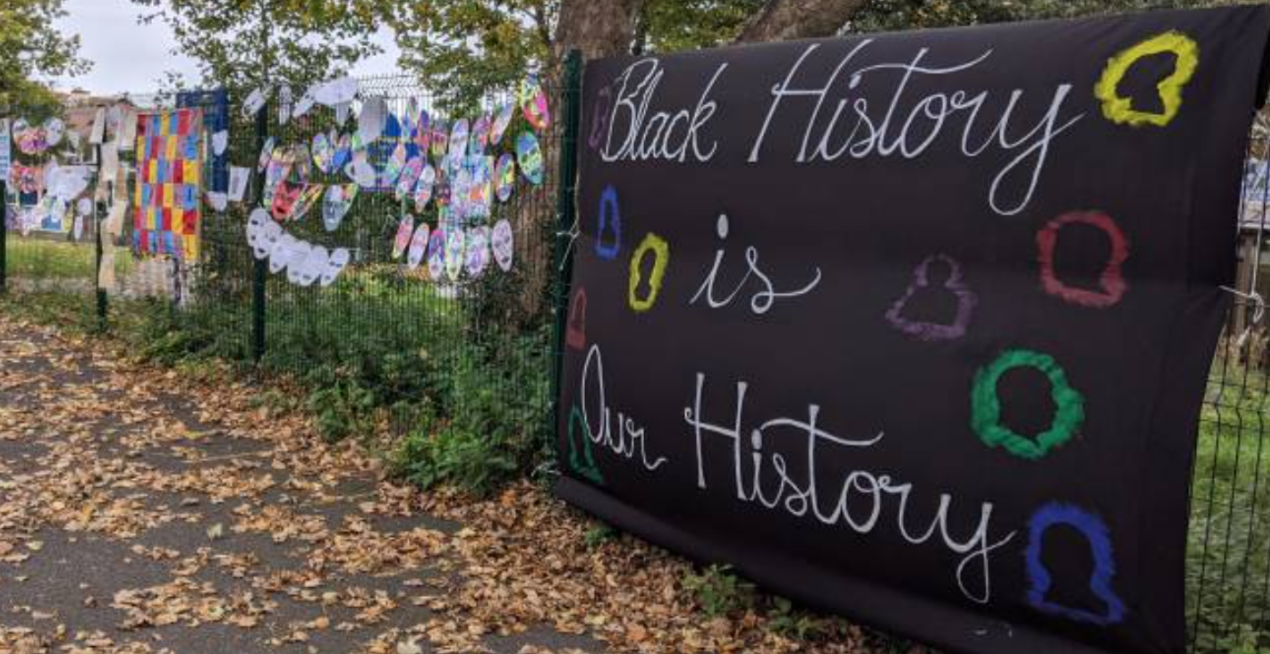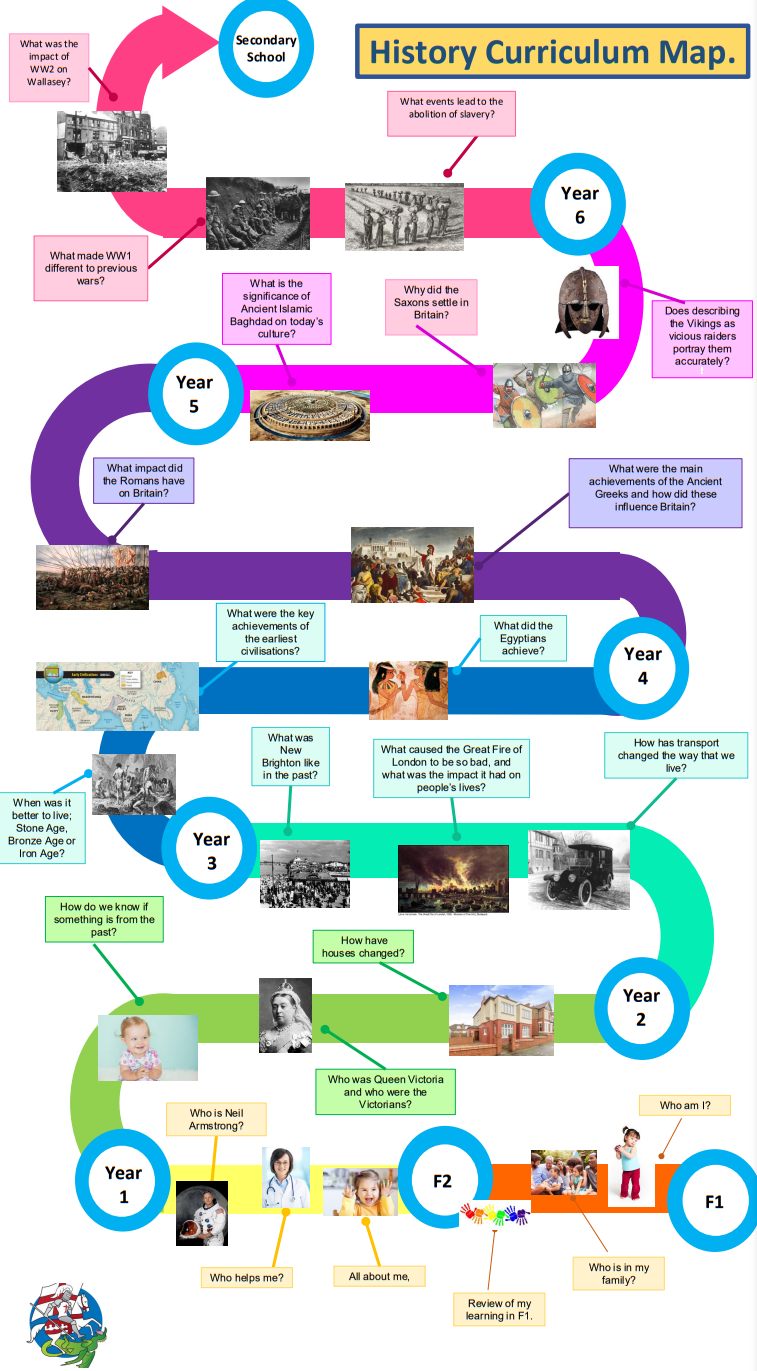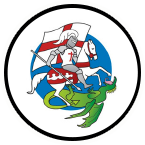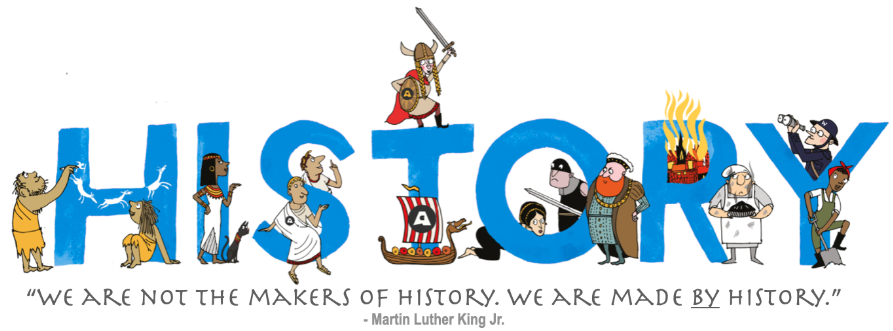Humanities (ID 1024)
-
Other Subjects
-
Humanities Links
Humanities Links
At St. George's, children access a high-quality history curriculum which is inclusive to all, and encompasses British Values throughout. Our aims are to deliver a broad and balanced curriculum, which excites children and ignites their curiosity, ensuring the progressive development of historical concepts, knowledge and skills; and for children to complete in-depth studies of the past.
Being a historian at St. George's Primary School means:
Developing curiosity through delivery of a high-quality history curriculum which excites children and ignites their curiosity through in-depth studies of the past. Our teaching equips pupils with the core knowledge about the history of Britain and how it has influenced and been influenced by the wider world.
Learning about important events in history and exploring key events from the Stone Age to the end of the Anglo-Saxon era. We also investigate the impact of the Slave Trade and the World Wars in the Merseyside region and - further afield - the impact of Early Islam on Baghdad.
Understanding local history and recent events in our local history (within living memory), children's historical understanding is developed through using artefacts, photographs, documents and videos. We want children to enjoy and love learning about history by gaining this knowledge and skills, not just through experiences in the classroom, but also with the use of fieldwork, educational visits and virtual reality.
Being investigative by exploring artefacts and other primary resources, including documents and photographs. Children will also use and evaluate secondary resources such as information books, websites and documentaries. They will use historical enquiry to able to ask and answer questions, using subject-specific and age-appropriate terminology. Children will also have opportunities to debate and discuss different events and interpretations of history - this allows for them to develop historical opinions and explore the different aspects of history (cultural, social, economic, military, political, religious etc).

Being knowledgeable about history and having a good understanding about chronology, children should have a good historical vocabulary which supports oracy skills. Children should also be informed about civilisations and empires from the past, understand why they were important and why we still learn about them today. They will develop an understanding of important periods of time and events that directly impacted the New Brighton, Wallasey and Merseyside area. Children will deepen their knowledge about some famous people from history and their impact.
Developing our spiritual, social, cultural and moral understanding, children will learn bout times in history, but also celebrate cultures and reflect on significant events. Children will be exposed to SMSC topics such as Black History Month, Holocaust Memorial Day and International Women's Day. History will help form their moral compass and social awareness.

Inclusive practice:
We have the highest ambition for all of our children. Through inclusive practice, needs of all will be supported to develop their historical knowledge and skills.
An inclusive approach to education means that each individual learner is valued and that they are treated with dignity and respect.
In an inclusive classroom, teachers are aware of the diversity of students and work with them to create a safe and collaborative learning environment.
We will teach our children to describe history as:
EYFS and KS1 - learn about how people lived in the past and what has changed.
Years 3 and 4 - learn about some of the important figures, changes and events of the past.
Years 5 and 6 - to understand the past, we have to understand the people of the past.
Key essential skills:
- investigating artefacts, primary and secondary resources and evaluate their usefulness.
- organising historical information chronologically.
- identifying and describing similarities and differences when comparing different eras, events and figures in history.
- interpreting key historical events.
- understanding a wide range of historical vocabulary, and use it when communicating ideas with others.
When learn history because the events of the past are important and affect the way we live today. We ask key historical questions, such as:
- How has this history affected the world? What were the key events?
- When did different people live? Why was this an important time in history?
- What was it like in different times in history?
- How did the world change? What has changed?
- Why were the attitudes different then? What can we learn from the past?
- Who were the important individuals in history?

Promoting RESPECT:
Resilience: What does history teach us about the resilience of human nature? How has people coped in adversity?
Empathy: Can we imagine the struggles of the past? What does it tell us about today's world? How did we respond to refugees in World War 2? How does this compare to our attitudes today?
Self-Awareness: How has self-awareness developed leaders in history? What can we learn from attitudes in other ages?
Positivity: Who can we celebrate in history as positive role models? What helped some civilisations (Egyptians, Romans etc) thrive?
Excellence: What are the important moments and figures in history? How did they impact the world and promote excellence in transport, communication, technology etc.
Communication and Teamwork: How has communication and teamwork helped in history? How did the Romans army work together? Were the Anglo-Saxons a band of invaders?

History curriculum map:

Files to Download
-
History Curriculum Statement
download_for_offline
↑
download_for_offlineHistory Curriculum Statement
- History Long Term Sequencing download_for_offline
download_for_offlineHistory Long Term Sequencing
- History Road Map download_for_offline
download_for_offlineHistory Road Map
- History Skills Progression download_for_offline
download_for_offlineHistory Skills Progression
- History Long Term Sequencing download_for_offline



